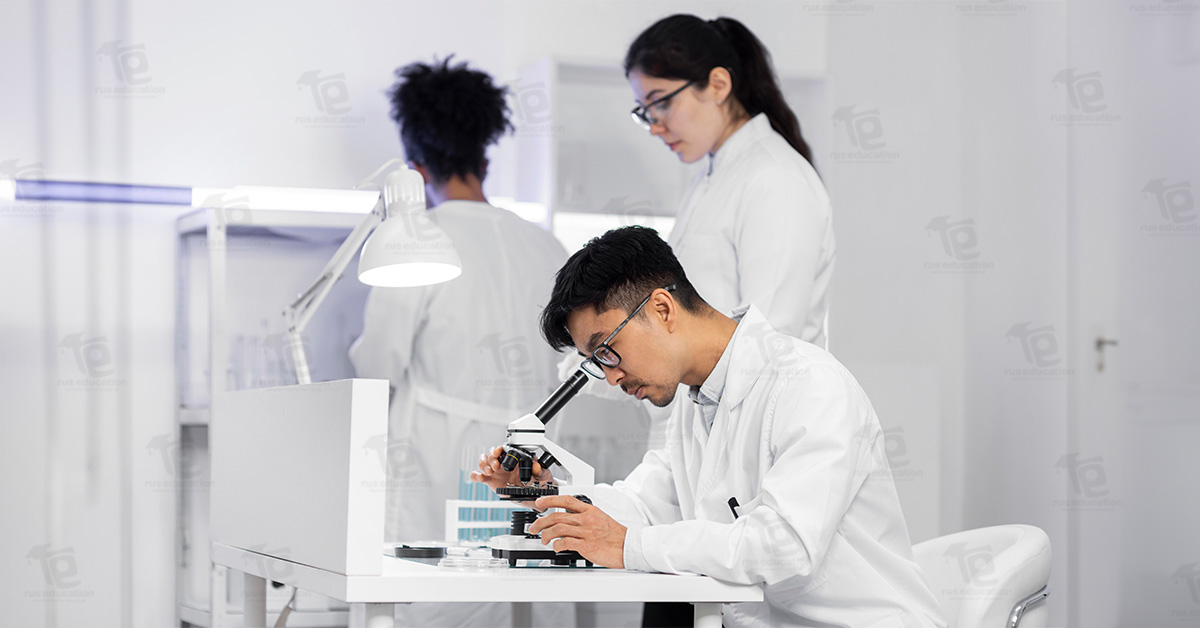From Classroom to Clinic: Practical Training for MBBS in Russia
One of the main aspects of medical education is the transition from theoretical learning in the classrooms to hands-on clinical experience in real healthcare settings. Students studying MBBS in Russia experience the transition is both structured and enriching. This provides students with a well-rounded preparation for a global medical career. Top Medical Universities in Russiaemphasize practical training as a key component of medical program, ensuring that students graduate with the knowledge and skills required to succeed in clinical practice. Here are various practical training opportunities available for MBBS students in Russia.
1. Early Exposure to Clinical Practice
Top Medical Universities in Russia integrate clinical exposure early in their MBBS programs. This allows students to apply theoretical concepts to real patient care. The practical training during MBBS in Russia often begins from the second or third year onwards. Students start participating in clinical rotations at the universities’ affiliated teaching hospitals. Through early exposure, students studying MBBS in Russia gain a deeper understanding of the human body, diagnostic processes, and patient interaction.
2. Clinical Rotations in Specialized Departments
To build a strong foundation of medical education, MBBS students in Russia undergo clinical rotations across various medical specialties. This includes internal medicine, surgery, pediatrics, obstetrics and gynecology, and more. These rotations provide students with hands-on experience in diagnosing and treating patients under the supervision of experienced doctors. Undergoing clinical training in different departments allows students to explore various fields of medicine and helps them decide which specialties they might want to pursue in the future.
3. State-of-the-Art Teaching Hospitals
Most Russian Medical universities are affiliated with well-equipped teaching hospitals that provide students with an advanced learning environment. These hospitals are well-equipped with advanced technologies and offer MBBS students in Russia access to advanced medical technologies, diagnostic tools, and treatment methods, preparing them to work in diverse healthcare settings across the globe. While becoming familiar with cutting-edge medical technologies, students get the opportunity to improve their skills and develop a strong foundation in medical practice that will allow them international exposure.
4. Patient Interaction and Communication Skills
Practical training allows students to interact significantly with patients. This is one of the crucial parts of medical students’ learning stages. It helps students develop essential communication skills and learn to take patient histories, perform physical examinations, and communicate complex medical information clearly and compassionately. This direct interaction with patients helps students build confidence and improves their ability to connect with individuals from different backgrounds.
5. Hands-On Surgical and Procedural Training
For those pursuing surgical specialties, the Top Medical Universities of Russia offer extensive hands-on training in surgical procedures. Students are encouraged to participate in surgeries, assist experienced surgeons, and learn the intricacies of operating room protocol. Additionally, procedural training, such as taking blood samples, administering injections, and suturing wounds, is a key part of the curriculum, ensuring that students are well-versed in essential medical skills.
6. Rural Healthcare Exposure
Besides the Urban healthcare sector, many Medical Universities in Russia organize rural healthcare training, where students work in smaller community clinics. The experience in rural region differs from that of the Urban ones. This experience allows students to understand the unique challenges of rural medicine, including limited resources and a wider scope of practice. Rurak healthcare exposure provides students an opportunity to contribute to underserved communities and develop a holistic approach to patient care.
7. Simulation-Based Learning
Simulation-based training has become one of the most crucial types of medical training to enhance the knowledge and skills of students seeking for an excellent educational program. Through Simulation training, students can refine their skills to practice in a controlled environment, improve decision-making skills, and prepare for high-pressure situations that involve real patients.
8. International Exchange and Elective Opportunities
Studying MBBS in Russia allows Indian students to partake and engage in international exchange programs or electives. Through these exchange programs, students gain clinical experience that enables them to practice in different countries. Such global exposure is invaluable for students aspiring to work in international medical settings or pursue further studies abroad.
9. Research and Clinical Trials
In addition to clinical rotations, MBBS students in Russia are encouraged to participate in medical research and clinical trials. To provide comprehensive medical education in Russia for medical students, Top Medical universities in Russia often collaborate with research institutions and hospitals, providing students with the opportunity to work on cutting-edge medical research. This experience allows students to enhance their understanding of evidence-based medical training and contribute to the advancement of medical science.
10. Licensing Exam Preparation
Medical education in Russia and the practical training provided in Top Medical Universities of Russia is designed to align with international medical licensing exam requirements including the regulations laid down by the NMC. Whether students aim to practice in India, the United States, or other countries, the clinical training they receive during their 6 years MBBS in Russia, prepares them to meet the standards of global medical licensing exams, such as the FMGE (Foreign Medical Graduates Examination), USMLE (United States Medical Licensing Examination), or PLAB (Professional and Linguistic Assessments Board), etc.
Read More: From Classroom to Clinic: How MBBS in Russia Prepares You for Global Practice?
Conclusion
The journey from classroom to clinic for MBBS students in Russia is carefully structured to provide MBBS students with a comprehensive education that combines theory with clinical experience. Early exposure to clinical practice, specialized rotations, and global exchange programs, at the Top Medical Universities of Russia ensure that students are well-prepared to face the challenges of the medical profession. By the time they graduate, students have not only mastered the academic aspects of medicine but also gained the confidence, skills, and compassion necessary for patient care in a global medical landscape.
Read Latest Blog: From Classroom to Clinic: The Journey of a Medical Student in Russia




